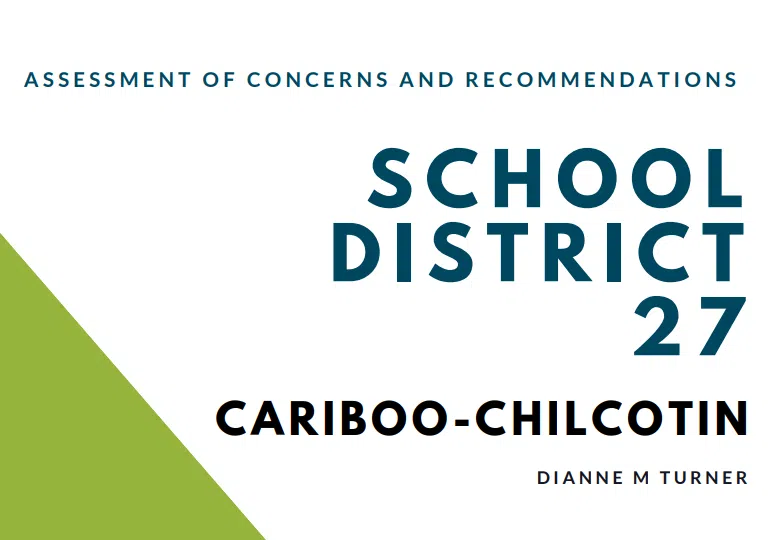
Morale at an all-time low in Cariboo-Chilcotin School District: report
WILLIAMS LAKE — A B.C. Ministry of Education report has found morale in the Cariboo-Chilcotin School District is at “an all-time low.”
The report was written by special advisor to the B.C.’s Ministry of Education Dianne Turner, who was dispatched to the district last November and December to meet with administration, trustees and union officials.
Her trip was sparked by a non-confidence motion the Cariboo Chilcotin Teachers Association (CCTA) passed last November, when it alleged financial mismanagement and non-compliance with the BCTF Supreme Court of Canada ruling concerning class size and composition.
“Morale has been expressed as being at an ‘all-time low’. The district has a few staff on leave and it has been suggested that more will be going on leave or will leave SD27 to work in other districts,” reads the report. “Most of those interviewed discussed that the cause of low morale across the district stems from poor relationships, lack of respect, and a complete lack of trust.”


